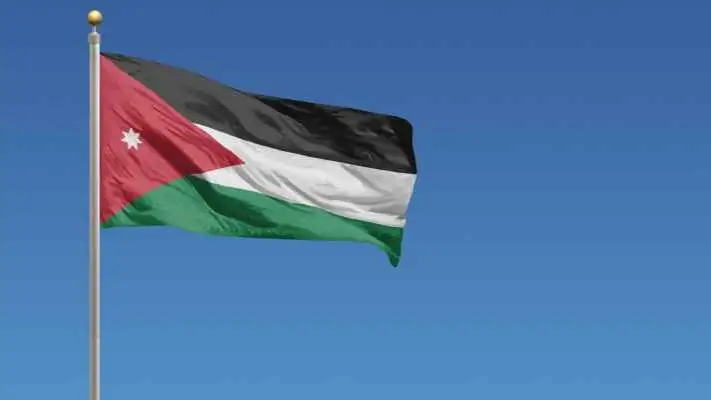Pharaonic hieroglyphic inscription of Ramses III discovered in southern Jordan
Minister of Tourism and Antiquities Lina Annab announced the discovery of a Pharaonic hieroglyphic inscription featuring a royal seal (cartouche) belonging to Pharaoh Ramses III (1186–1155 BC) in Wadi Rum Reserve in southern Jordan, Petra reports.

In the presence of the renowned Egyptian archaeologist Dr Zahi Hawass, Minister Annab highlighted the importance of the discovery, noting that the inscription marks the first such finding in Jordan.
She emphasised its significance as material evidence of the historic relations between Pharaonic Egypt, Jordan and the Arabian Peninsula, asserting that the discovery underscores Jordan's role not merely as a crossroads for civilisations but as a cradle for civilisations.
"This discovery is a qualitative addition to the inscriptions found in Jordan," she noted, describing the kingdom as an "open library" with a rich heritage of inscriptions. The hieroglyphic inscription illuminates an important aspect of Jordan's written heritage.
She acknowledged Dr Hawass's presence as a "privilege" and emphasised the importance of cultural and scientific collaboration between Jordan and Egypt.
She reaffirmed the Ministry's commitment to showcasing national heritage for future generations, stating that heritage preservation is essential for tourism and sustaining Jordan's identity.
Annab indicated that the formal announcement of the discovery will occur once all research and studies are completed to provide a holistic description of the archaeological find.
Dr Zahi Hawass explained that the newly found inscription features two cartouches exhibiting the name of King Ramses III one indicating his birth name and the other his throne name, signifying his reign over Upper and Lower Egypt.
He stressed that the discovery of Ramses III's name in southern Jordan is crucial and called for organised excavations at the site to potentially uncover significant artifacts that could further elucidate historical relations between Jordan and Egypt spanning over 3,000 years.
Dr Hawass expressed gratitude for the opportunity to collaborate with Jordanian archaeologists, emphasising the significance of such cooperation in exploring antiquities.
Dr Aktham Owaidi, Acting Director General of the Department of Antiquities, welcomed Dr Hawass and commended Minister Annab for her unwavering support of the antiquities sector.
He highlighted the importance of meetings for enhancing cultural and scientific cooperation and exchanging expertise to protect and preserve cultural heritage for future generations.
He pointed out that Jordan, with its wealth of archaeological and historical treasures, continues to serve as a beacon of science and heritage both regionally and globally.
A group of Jordanian archaeologists, including Professor Ahmed Lash from the Department of Antiquities and Dr Ali Manaseer from the Hashemite University, provided insights into their efforts in documenting the hieroglyphic inscription, which represents the royal signature of Pharaoh Ramses III.
Discovered southeast of the Wadi Rum Reserve near the Jordanian-Saudi border, the find is the first of its kind in Jordan and part of a collaborative initiative with the Saudi Heritage Commission aimed at tracing archaeological evidence linked to Ramses III's campaigns in the southern Levant and Arabian Peninsula.
The researchers noted that the discovery opens new avenues for scientific inquiry, illuminating the cultural, commercial and military connections that existed between Egypt, the southern Levant and the Arabian Peninsula throughout history.
They acknowledged the documentation of the inscription was undertaken in cooperation with Mohammed Dhamyan Zalabiyya from the Aqaba Special Economic Zone Authority, reflecting an integrated national effort to preserve shared heritage.
Annab honoured Dr Zahi Hawass in recognition of his outstanding academic and professional contributions to archaeological discoveries and the preservation of human heritage.
Earlier it was reported that Jordan's tourism revenues had risen by 8.9% in the first quarter of 2025.
